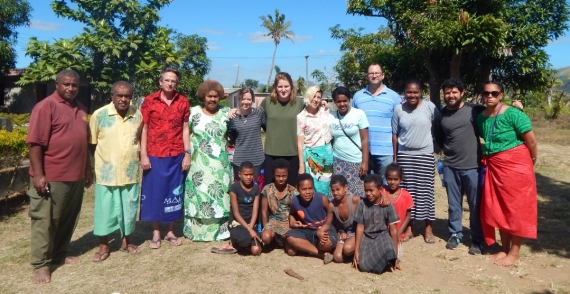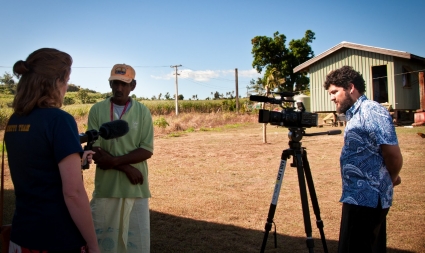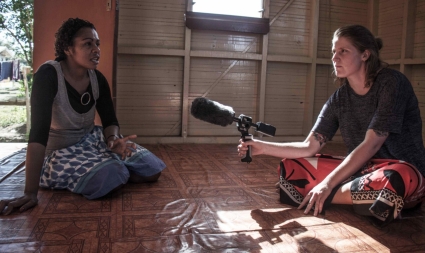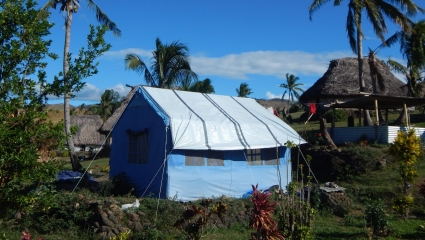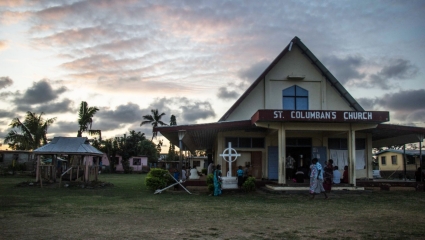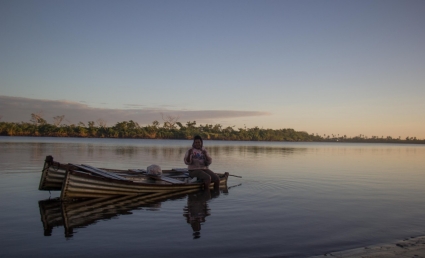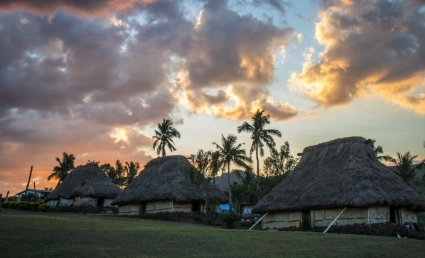A group of six postgraduate students in Development Studies and Media, Film and Television have just returned from a field study in Fiji to look into the aftermath of the devastating Cyclone Winston that hit the islands in February.
The study was conducted under a three-year collaborative research project on climate change adaptation in post-disaster recovery processes led by Professor Andreas Neef, Director of the Development Studies programme in the Faculty of Arts, and financed by the Asia-Pacific Network for Global Change Research.
The students were accompanied by Andreas and Dr Jesse Hession Grayman and joined by three Fijian students from the University of the South Pacific, who played a major role in facilitating the fieldwork and deepening intercultural communication in two iTaukei (indigenous Fijian) communities in the Ba watershed in north-western Viti Levu.
Juan Parada Diaz, a Colombian student studying Screen Production, will produce a short documentary film on the resilience of Fijian villagers to natural hazards as part of his Master of Arts thesis.
He says that "the experience of living in a couple of Fijian villages for two weeks gave me a very personal insight into the daily life and culture of the Fijian people. It was a really rewarding and enriching opportunity to talk to them directly about their experience with Cyclone Winston and the process of rebuilding their houses and livelihoods. It highlighted the importance of community and collaboration, a process that in their case is closely related to the religious beliefs they share."
"I had the chance to film a lot of it and am sure will still discover so much more to learn during the process of editing the documentary that will come out of it."

